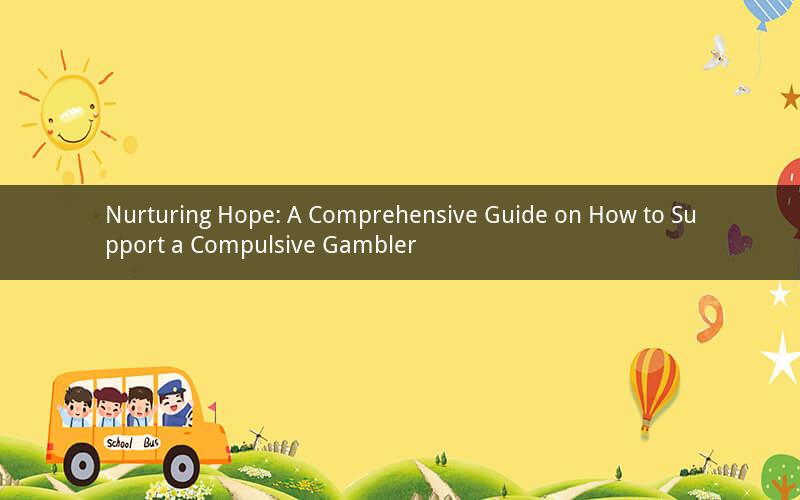
Supporting a loved one struggling with compulsive gambling can be a challenging and emotional journey. It requires patience, understanding, and a deep commitment to helping them overcome their addiction. This article delves into the intricacies of supporting a compulsive gambler, offering practical advice and insights to guide you through the process.
Understanding Compulsive Gambling
Compulsive gambling, also known as problem gambling or gambling addiction, is a behavioral disorder characterized by an inability to control the urge to gamble, despite negative consequences. It is a complex condition that can stem from various factors, including genetics, environmental influences, and mental health issues.
Recognizing the Signs
Identifying the signs of compulsive gambling is crucial in providing appropriate support. Look out for the following red flags:
1. Preoccupation with gambling: The individual constantly thinks about gambling, planning their next bet, or reliving past gambling experiences.
2. Loss of control: They find it difficult to stop gambling once they start, even when they know it's causing problems.
3. Financial problems: Compulsive gamblers often experience significant financial difficulties due to their gambling habits, including debt, lost income, and theft.
4. Relationship issues: Their gambling addiction can strain relationships with family, friends, and colleagues.
5. Emotional and psychological distress: Compulsive gamblers may experience feelings of guilt, anxiety, depression, and shame.
Creating a Supportive Environment
1. Educate yourself: Learn about compulsive gambling, its causes, and the impact it has on the individual's life. This knowledge will help you understand their struggles and offer more effective support.
2. Be patient and non-judgmental: Understand that recovery is a long and challenging process. Avoid making them feel guilty or ashamed, as this can worsen their condition.
3. Encourage professional help: Encourage your loved one to seek professional help, such as therapy or counseling, to address the underlying issues contributing to their gambling addiction.
4. Support their recovery efforts: Help them develop a plan to manage their gambling, such as setting limits on the amount of money they can spend or the time they can spend gambling.
5. Attend support groups: Joining a support group, such as Gamblers Anonymous, can provide you with valuable resources and a sense of community.
Financial Support
1. Understand the financial impact: Recognize that compulsive gambling can lead to significant financial problems. Be prepared to help them manage their finances, such as creating a budget or assisting with debt repayment.
2. Offer financial assistance: Consider providing financial support to help them overcome their addiction, such as covering therapy costs or helping them pay off debts.
3. Set boundaries: While offering financial assistance, be sure to set clear boundaries to prevent enabling their gambling behavior.
Communication Strategies
1. Open and honest dialogue: Encourage your loved one to share their feelings and experiences with you. This can help them feel supported and understood.
2. Active listening: Practice active listening by giving your full attention, nodding, and paraphrasing what they say to show empathy.
3. Avoid confrontational language: Refrain from using accusatory or confrontational language, as this can make them defensive and less likely to open up.
Dealing with Relapse
Relapse is a common part of the recovery process. If your loved one struggles with relapse, consider the following strategies:
1. Remain supportive: Offer your love and understanding during their relapse. Avoid shaming or blaming them, as this can worsen their condition.
2. Revisit their treatment plan: Discuss their relapse with them and adjust their treatment plan as needed.
3. Seek professional help: Encourage them to seek additional support from their therapist or counselor to address the underlying issues contributing to their relapse.
5 Questions and Answers
1. Q: How can I help my loved one overcome their gambling addiction?
A: Support them by educating yourself about compulsive gambling, encouraging them to seek professional help, and providing a non-judgmental environment.
2. Q: What should I do if my loved one is in debt due to gambling?
A: Help them manage their finances by creating a budget, assisting with debt repayment, and setting boundaries to prevent future financial problems.
3. Q: Can I force my loved one to seek help for their gambling addiction?
A: While you can encourage them to seek help, you cannot force them. Focus on providing support and understanding rather than pushing them away.
4. Q: How can I cope with the emotional stress of supporting a compulsive gambler?
A: Seek support for yourself by joining a support group, talking to friends or family, and seeking professional counseling if needed.
5. Q: What if my loved one refuses to seek help for their gambling addiction?
A: Continue offering support and understanding, but be prepared for the possibility that they may not be ready to seek help. Stay patient and maintain open communication.
In conclusion, supporting a compulsive gambler requires a combination of education, patience, and empathy. By understanding the complexities of their addiction and providing a supportive environment, you can help them on their journey to recovery. Remember, the road to recovery is long and challenging, but with your unwavering support, they can overcome their addiction and rebuild their life.